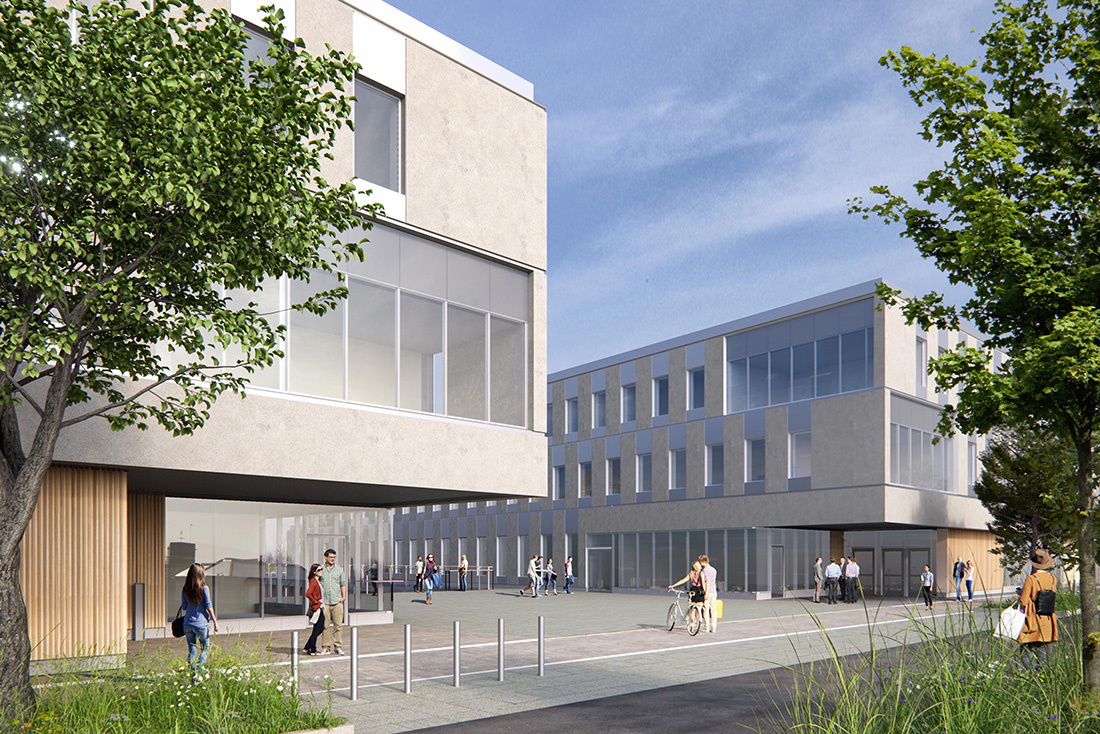Albano will be Sweden’s first campus certified to Citylab standards
Monday, 10 December 2018
A cohesive university district is growing in Stockholm that extends from Stockholm University in the north, via KTH over to Hagastaden, and with Karolinska Institutet to the west. The Albano Campus is developing into a modern and competitive university environment in harmony with nature and with the objective of becoming a role model in sustainable urban development. As a component of this effort, Akademiska Hus and Svenska Bostäder have now chosen to register the Albano Campus for certification according to Citylab standards, which unlike other sustainability certification initiatives not only applies to buildings, but also covers an entire urban development project.
“Citylab’s certification system provides us with confirmation that the visions, objectives and working methods that we adopted for Albano from the start actually lead to the creation of a campus with sustainability as the lodestar at every phase. Citylab also supports the collaborative processes underway in the project and helps us to create a cohesive campus,” says Hayar Gohary, project manager at Akademiska Hus.
The certification covers early and overarching planning and programme phases. In order to qualify, the project must meet the criteria for 20 indicators,covering both qualitative and quantitative assessment criteria and reporting requirements. The focus includes process management, organisation, dialogue and collaboration. In addition, the project must offer mixed use construction, sustainable travel modes, meeting places, green spaces, ecosystem services and energy systems with low climate impact.
“The initiative provides us with a clear platform for a structured approach with a complete palette of sustainability issues. For example, the system provides an excellent approach that facilitates intentional prioritisation of various qualities of the outdoor environment,” says Mats Åhlander, project manager at Svenska Bostäder.
As Stockholm University and KTH develop, it becomes increasingly obvious that modern new facilities are needed for research, education and collaboration. Consequently, in November 2015 construction kicked off for the Albano Campus, which with its strategic location strengthens the links between the city’s universities and forms a new neighbourhood that is vibrant regardless of time of day.
The development work is a collaborative project involving Akademiska Hus and Stockholm University, KTH, Svenska Bostäder and the City of Stockholm.All of the stakeholders share and promote the vision of the Albano Campus contributing to sustainable urban development. Several sustainable initiatives are involved, such as strengthening the potential for increased biodiversity for bees, insects and birds. New water systems are being created in the area to take care of surface water and improve the microclimate, while outdoor environments are being designed to strengthen the distribution pathways of plants and animals. The sustainability initiatives also include everything from material choices to the design of bicycle paths. To make the new buildings under construction as energy-efficient as possible, Akademiska Hus is using geothermal heating and cooling systems, and installing rooftop solar panels.
“Albano will be a vibrant and competitive campus of international proportions that will benefit Stockholm, the region and Sweden in its role as an attractive nation of knowledge. It goes without saying that we will do our utmost to make the campus as sustainable as possible,” says Hayar Gohary, project manager at Akademiska Hus.
Albano Campus stakeholders
Plan owner: City of Stockholm
Tenants: Stockholm University and KTH
Developer: Akademiska Hus (university facilities), Svenska Bostäder (undergraduate and graduate student housing)
Architects: BSK Arkitekter, Cedervall Arkitekter and Christensen & Co Architects (university facilities), Tyréns, Brunnberg & Forshed, Tovatt Architects and Planners and Joliark (undergraduate and graduate student housing), Nivå Landskapsarkitektur (outdoor environments)
Schedule
Ground breaking ceremony: November 2015
Planned initial occupancy, housing: 2021
Planned initial occupancy, university facilities: 2020